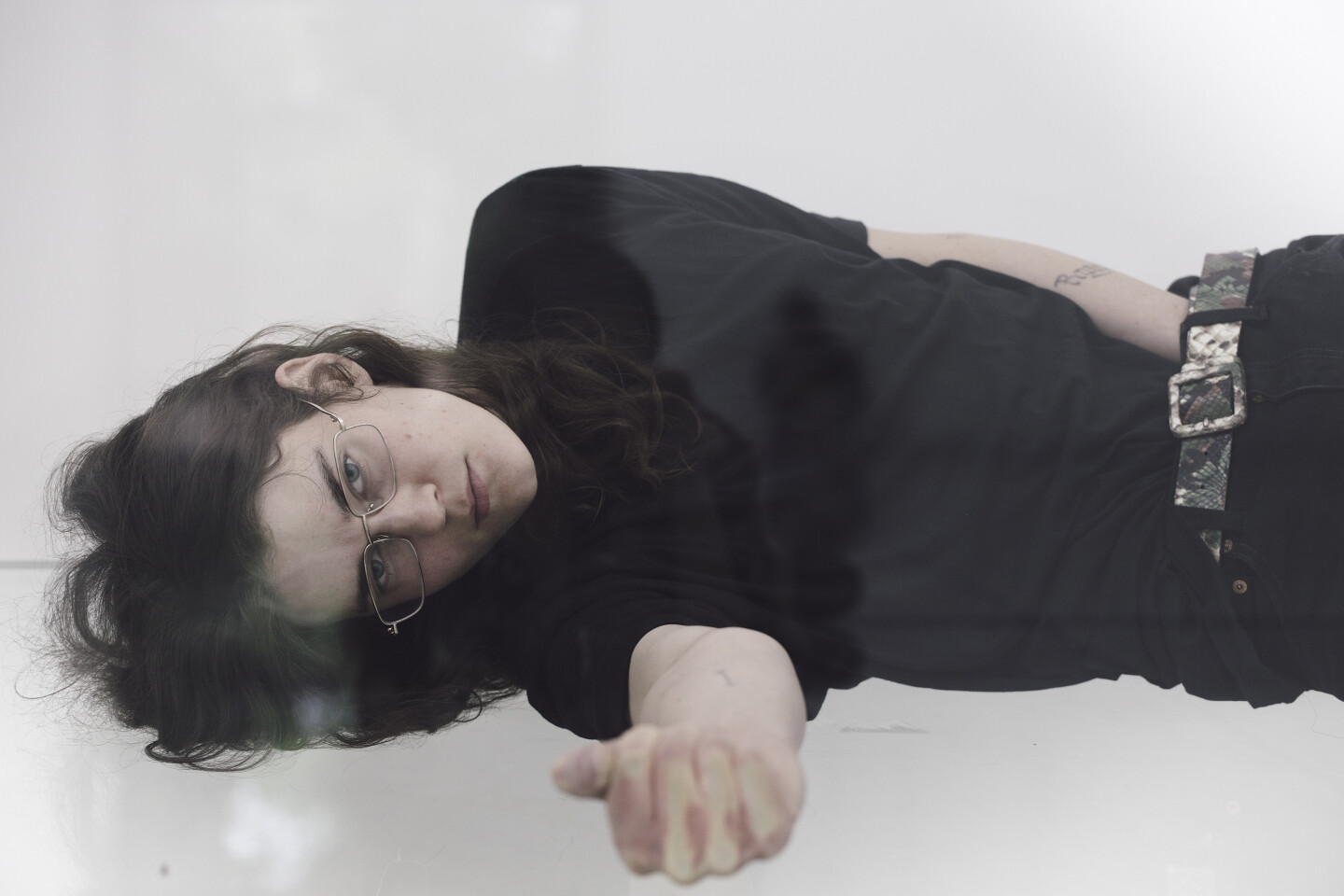Faust
May 13–November 26, 2017
At the invitation of Susanne Pfeffer, Anne Imhof has conceived the work Faust for the German Pavilion at the 57th Venice Biennale. In a sculptural setting designed specifically for the space and the occasion, the new piece unfolds unseen compositions, elaborated together with the core members of Imhof’s team. Faust is both a durational performance of several hours and a seven-month-long scenario comprised of performative dynamics, sculptural installations, painterly touches, and rigorously choreographed visual axes and movements that encompass the entire pavilion. Faust belongs to an unconditioned present, the essence of which is conveyed instantly to the audience:
A room, a house, a pavilion, an institution, a state. Glass walls and glass ceilings, fluid and crystalline, permeate the room as if it were one of the centers of financial power. The boundaries of the space disclose everything, making it both visible and subject to control. The heightened floor elevates bodies and modifies spatial proportions. Next to us, below us, above us, there are the bodies of individuals, the bodies of the many. The performers, elated and degraded, move across, below, and atop the pavilion. They are stationed on freestanding glass pedestals and perched against the walls, simultaneously body, sculpture, and commodity. Suddenly, we find ourselves in the midst of various constructions of power and powerlessness, capriciousness and violence, resistance and freedom. Outside, in a territory of one’s own, dogs guard the house.
The scream falls silent as the delayed blow of the hand strikes its target. What looks like an embrace grows stiff, while the subdued battle of pent-up forces is raging. The muffled sound of the chest-beating fist [faust] trails off, the arm rebounds mechanically. Pressed against the glass, bodies are contorted beyond recognition, forming an indistinct, carnal mass. The hand quietly, self-sufficiently, pleasures the sex. The performers’ bodies are reduced to bare life. They can be analyzed in terms of their sexual economy. Masturbation as regression and resistance, as the death of sexuality and, at the same time, an image of sexuality served up exclusively for visual consumption. Pleasure does not originate in sexual intercourse but in the act of seeing and being seen. The mute howls bear witness to the ever-increasing pain of vanishing living beings and to the zombification of capitalist bodies. Dualistic conceptions and the frontier between the subject and the object of capitalism disintegrate. But how does power act when it splits away from subjects and turns them into objects? “It is a form of control […] whose spread throughout the social body has never been so rapid or so undetectable.” (Paul B. Preciado) The essence of capitalism consists in unrestrained consumption and the destruction of bodies.
More information: www.deutscher-pavillon.org
Catalog:
Susanne Pfeffer (ed.): Anne Imhof. Faust, with contributions by Franziska Aigner, Eliza Douglas, Anne Imhof, Susanne Pfeffer, Juliane Rebentisch, Kerstin Stakemeier, and photographies by Nadine Fraczkowski. Editions in English and German, 188 pages, Koenig Books, 2017, Graphic design Zak Group, ISBN (English): 978-3-96098-170-1, ISBN (German): 978-3-96098-166-4
The German contribution to the 57th Venice Biennale is realized on behalf of the German Federal Foreign Office and in cooperation with ifa (Institut für Auslandsbeziehungen).
Press contact:
Ann-Charlotte Günzel
press [at] deutscher-pavillon.org / T +49 163 806 3010

